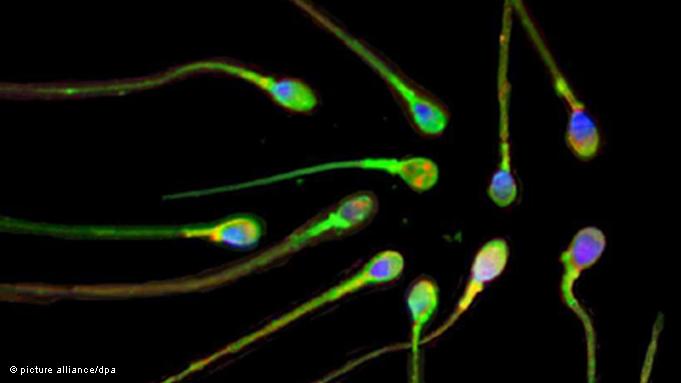It’s tough being a man
 Do men ever try to look at themselves as ‘men?’ A new film by Indian journalist and filmmaker Vivek Asri tries to portray the struggles of an Indian man trying to come to terms with the fact that he is infertile and cannot sire a child. How does such a man deal with the Indian stereotype of a macho, virile male and what does his wife have to go through in the process? Vivek speaks to Women Talk Online about the recurring themes of gender identity and of the sense of masculine loss in his film, “Every silence, another doubt.”
Do men ever try to look at themselves as ‘men?’ A new film by Indian journalist and filmmaker Vivek Asri tries to portray the struggles of an Indian man trying to come to terms with the fact that he is infertile and cannot sire a child. How does such a man deal with the Indian stereotype of a macho, virile male and what does his wife have to go through in the process? Vivek speaks to Women Talk Online about the recurring themes of gender identity and of the sense of masculine loss in his film, “Every silence, another doubt.”
Manasi Gopalakrishnan: What message do you want to convey through this film?
Vivek Asri: First of all, our society is hypocritical. If a couple has no children, the woman has to take the blame. If a man is the reason behind it, then the entire community is shocked. Secondly, if a man cannot produce a child, it is no less painful for him. He has to bear society’s taunts and he feels inadequate himself. Being infertile is equated with not being ‘man’ enough. If a man cannot become a father, then he is not a man, so far the society is concerned.
How do men deal with this problem?
Such people usually keep to themselves and agonize over their problems or make their wives responsible for the situation. In both cases, the wife has to bear the brunt. No man would ever openly acknowledge that he is infertile. It’s always the woman’s fault.
How do the wives suffer?
Right now the Indian market is flooded with fertility clinics. Every street seems to have a fertility clinic and most patients are women, although it has been scientifically proved that, in most cases when a couple cannot bear a child, it is the husband who needs medical attention. Women go to doctors, women take the necessary medication and women bear the brunt when society accuses them of being infertile. They even go to witch doctors. Most women are not even aware of the fact that it is their husbands who need treatment. Even educated people don’t get themselves tested. If a couple does not have a child, nobody raises a finger at the husband.
How have you dealt with the issue in your film?
“Every silence, another doubt” is the story of a couple who do not have a child even after four years of marriage. The husband’s mother takes her son and the daughter-in-law to the doctor. The doctor confirms that her son has a medical problem and the son has to undergo a test.
This man is educated and the social implications of his problem become clear to him. Hospitals in India usually don’t have any specific room for fertility tests. The patient is sent to a dirty toilet to collect a sample of his semen. In the film, the man isn’t able to collect any semen and he tries to find a suitable place. The situation is comical, but also painful for him at the same time. It’s funny when you watch the movie. People laugh at this poor man all through the film. Somebody needs to collect his semen sample for an important medical test and everyone finds it funny.
Do you think that Indian society does not take men’s problems seriously?
Yes, people find such incidents funny. But our protagonist is actually on a quest to find himself. Until now, he kept avoiding an answer to the question, “Can I?” He never wanted to answer this. And now he will get an answer as to whether he can have a child or not and he needs to prepare himself. His search for this answer is a part of his quest to find himself.
Vivek Asri’s film also leads one to think that the Indian society has apparently defined a stereotype for the Indian male. As such, the Indian male also needs emancipation in order to come out of this stereotype. Once the expectations of being a macho, virile man are done away with, there probably won’t be so many cases of rape in India. maybe the Indian man won’t be pressurized into proving his masculinity all the time. “That’s right,” says Vivek Asri,” If we can put an end to ‘being a man’ and ‘proving one’s masculinity,’ then a lot of problems would be solved. Rape in any case is not a women’s issue, it’s a male issue.”
Interview: Manasi Gopalakrishnan
Editor: Arun Choudhury






